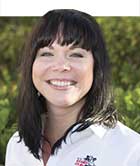I've come to the conclusion that the positive potential of sharing my farming story with the masses has to outweigh the fear. We hear more and more about the need to tell our farming stories on social media, especially with the rise in activist videos. And with the negative press those videos generate, I understand the hesitation to share.
There are many forms of "social" media a farmer can use; they don't have to involve the internet. Ultimately, what you choose needs to work for your farm, and you only need to pick one or two. Here are a few options:
Some ideas that might help you develop posts are: your child with their first show calf, the milk truck leaving your farm and mentioning how samples are drawn for precautions against antibiotics, that you had frozen silage this morning and how you went above and beyond to make sure your cows are fed properly, or that the vet is out for herd health check and why that's important to the health and quality of your milk and animals.
I'm convinced that, when our hearts are in the right place, something good comes from everything. This is especially applicable to us as farmers opening our doors for the world to see our ethical practices.

The author, Ali Enerson, was the special publications editor, responsible for books, plans, distribution of the e-newsletter and various internal communication pieces. She grew up on a 60-cow dairy in northwest Wisconsin, and is a graduate of University of Wisconsin–Madison with a degree in life sciences communications.
There are many forms of "social" media a farmer can use; they don't have to involve the internet. Ultimately, what you choose needs to work for your farm, and you only need to pick one or two. Here are a few options:
- Sponsor a breakfast in your local community, inviting people to the farm.
- Open your doors for farm tours to the local schools or daycares; leave them with some healthy chocolate milk and cheese at the end of the tour.
- Start a farm Facebook page.
- A Twitter account lets you leave short posts to your followers.
- A farm blog will tell more details about your operation.
Some ideas that might help you develop posts are: your child with their first show calf, the milk truck leaving your farm and mentioning how samples are drawn for precautions against antibiotics, that you had frozen silage this morning and how you went above and beyond to make sure your cows are fed properly, or that the vet is out for herd health check and why that's important to the health and quality of your milk and animals.
I'm convinced that, when our hearts are in the right place, something good comes from everything. This is especially applicable to us as farmers opening our doors for the world to see our ethical practices.

The author, Ali Enerson, was the special publications editor, responsible for books, plans, distribution of the e-newsletter and various internal communication pieces. She grew up on a 60-cow dairy in northwest Wisconsin, and is a graduate of University of Wisconsin–Madison with a degree in life sciences communications.








